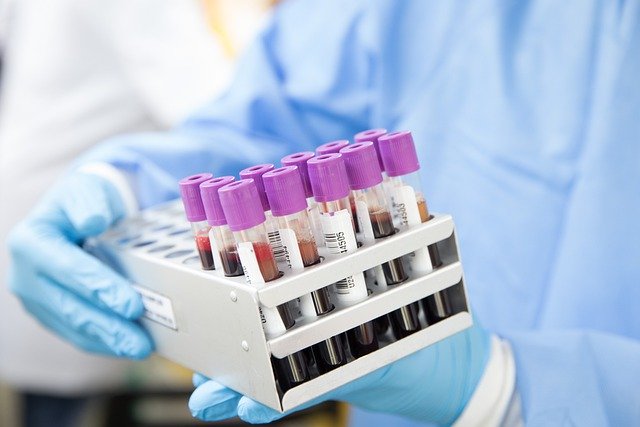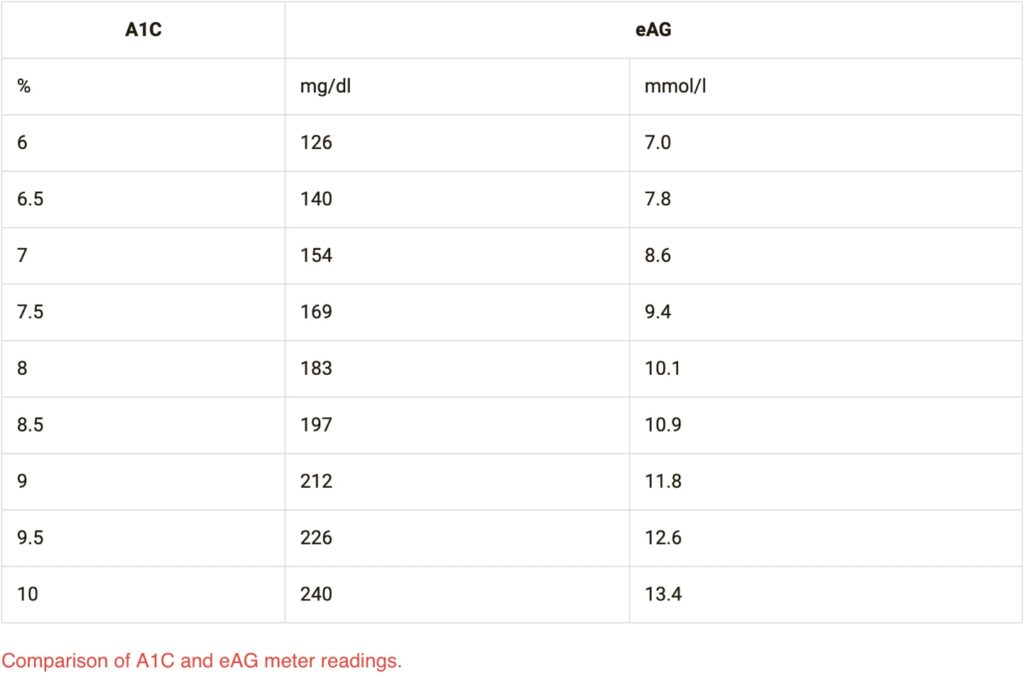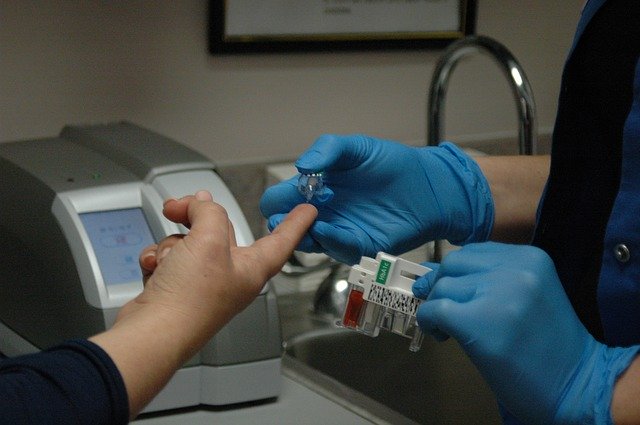What Is A1C?
A1C (Glycohemoglobin, HbA1C, Hemoglobin A1C test) is a blood test for type 2 diabetes and prediabetes. It can identify prediabetes, which raises your risk for diabetes. It can be used to diagnose diabetes. And it’s used to monitor how well your diabetes treatment is working over time. It’s also a critical step in forming your game plan to manage diabetes with your HealthCore Clinic diabetes care team.

How Does The A1C Test Work?
The test measures your average blood glucose, or blood sugar, level over the past 3 months. At HealthCore Clinic, we use the A1C either on its own or in combination with other diabetes tests to make an accurate diagnosis. We also use the A1C to see how well you are managing your diabetes. This test is different from the blood sugar checks that people with diabetes do every day.
Your A1C test result is given in percentages. The higher the percentage, the higher your blood sugar levels have been:
- A normal A1C level is below 5.7%
- Prediabetes is between 5.7% to 6.4%. Having prediabetes is a risk factor for getting type 2 diabetes. We recommend getting tested each year if your A1C falls within these percentages.
- Type 2 diabetes is above 6.5%
- If you have diabetes, you should have the A1C test at least twice a year.

The A1C goal for many people with diabetes is below 7%. It may be different for you. At HealthCore, we help you set a goal for where your A1C results should be and create a custom diabetes care plan specific to your needs.
What Is Estimated Average Glucose (eAG)?
When looking at your A1C, another way we analyze your results is eAG, or Estimated Average Glucose. eAG is similar to what you see when monitoring your blood sugar at home on your meter. However, because you are more likely to check your blood sugar in the morning and before meals, your meter readings will likely be lower than your eAG.

Should I Get A Blood Sugar Test?
If you’re an adult over age 45 you should get tested for diabetes with a Blood Sugar Test.
If you’re under 45, are overweight, and have one or more risk factors for prediabetes or type 2 diabetes, you should get a Blood Sugar Test.
A Blood Sugar Test measures your blood sugar after an overnight fast (not eating). A fasting blood sugar level of 99 mg/dL or lower is normal, 100 to 125 mg/dL indicates you have prediabetes, and 126 mg/dL or higher indicates you have diabetes.
If you are diagnosed as prediabetic or diabetic, you will then need to have A1C testing on a regular basis.
How Often Should I Get An A1C Test?
Once you have been screened with a Blood Sugar Test and have been diagnosed as prediabetic or diabetic, you will need to have A1C testing on a regular basis. Your HealthCore Clinic team will help set goals and a schedule for retesting, but a general rule of thumb is:
- If your A1C result is normal but you’re over 45, have risk factors, or have ever had gestational diabetes, repeat the A1C test every 3 years.
- If your result shows you have prediabetes, we will help create a plan to improve your health and lower your risk for type 2 diabetes. You will repeat the A1C test based on your HealthCore provider’s recommendation, typically every 1 to 2 years.
- If you don’t have symptoms but your result shows you have prediabetes or diabetes, we may conduct a second test on a different day to confirm the result.
- If your test shows you have diabetes, your HealthCore provider will recommend services so you can have the best start in managing your diabetes.
If you have diabetes, get a Diabetes test at least twice a year, more often if your medicine changes or if you have other health conditions. Talk to your HealthCore Clinic provider about how often is right for you.
How To Prepare For An A1C Test
Simply call or click to schedule an A1C test at HealthCore Clinic. A member of our medical team will gather a sample of blood from a finger stick or drawn from your arm. You don’t need to do anything special to prepare for your A1C test. However, if other tests will be done at the same time you may need to prepare for them. We will review all of this when you schedule your appointment.
How Do I Schedule An A1C?
Call us at (316) 691-0249 or click below to request an appointment. It’s that easy.

Affordability
Healthcare for All
Financial concerns should not be a barrier to receiving high-quality healthcare services.
We accept most insurance, offer sliding scale fees, discounts, and Care Coordinators to help.
